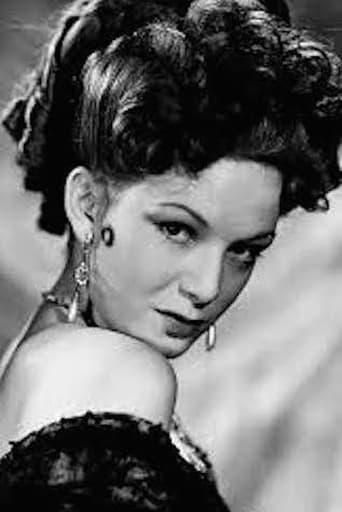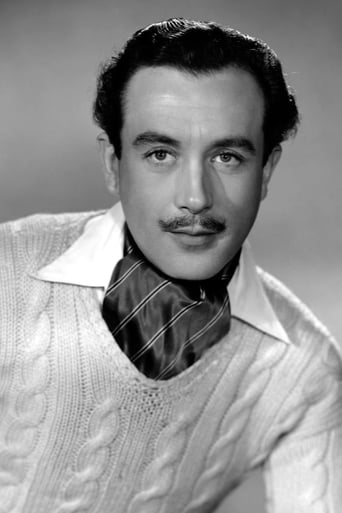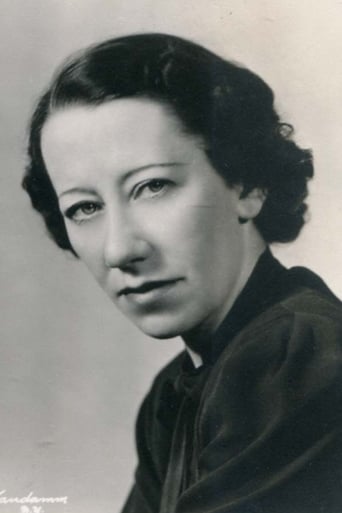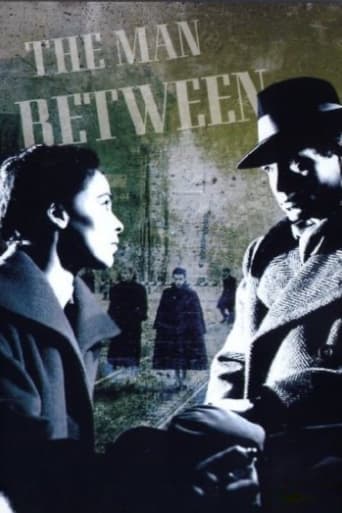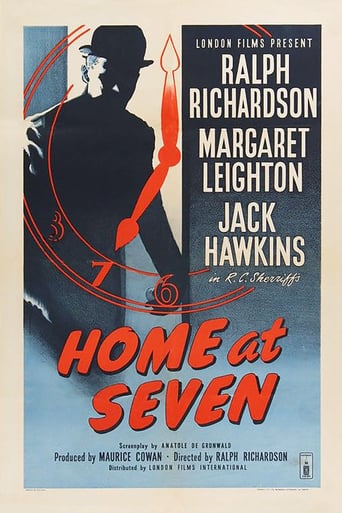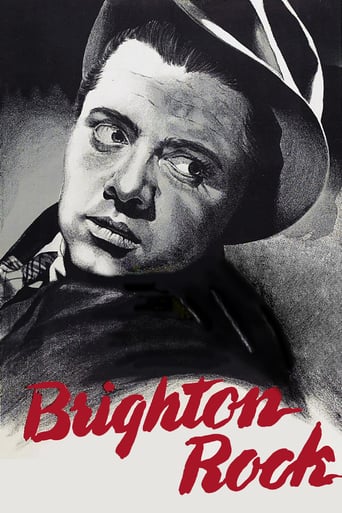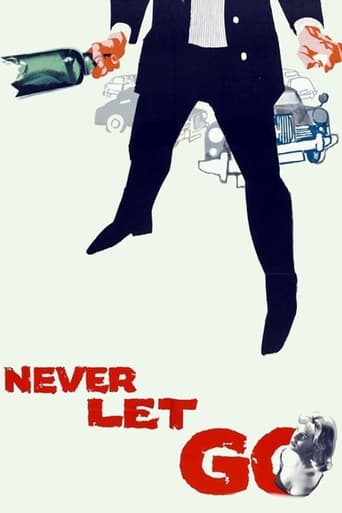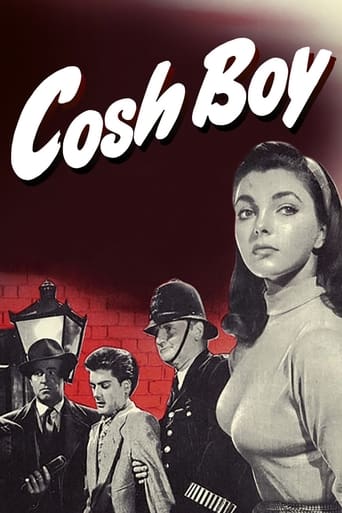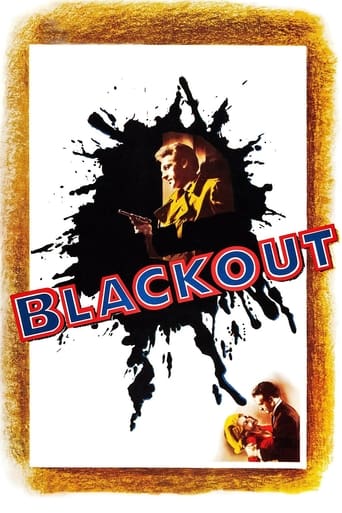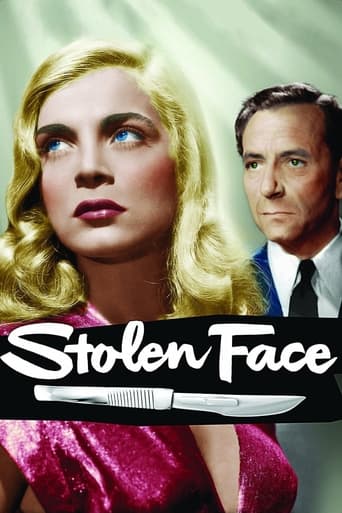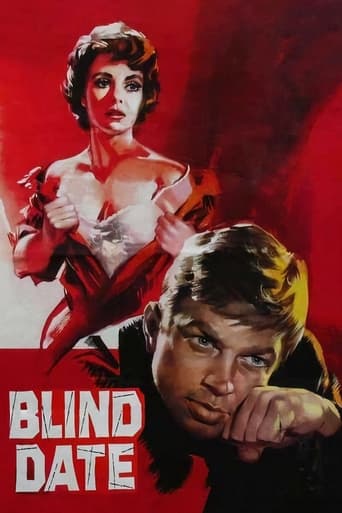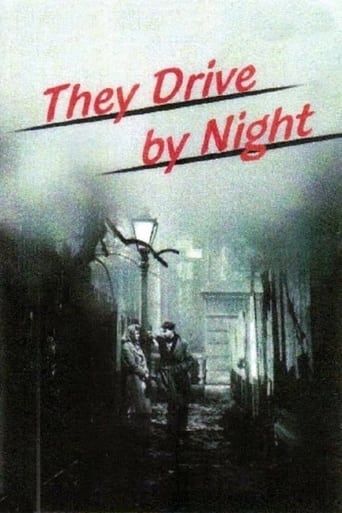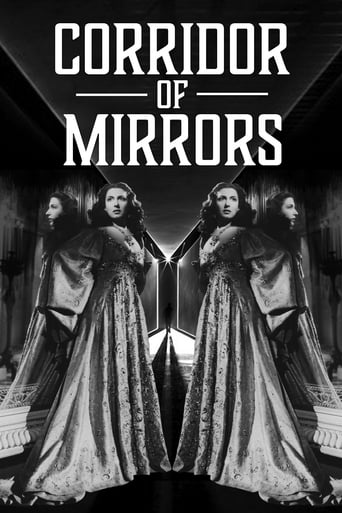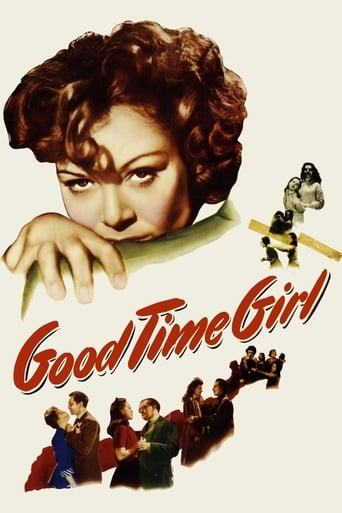
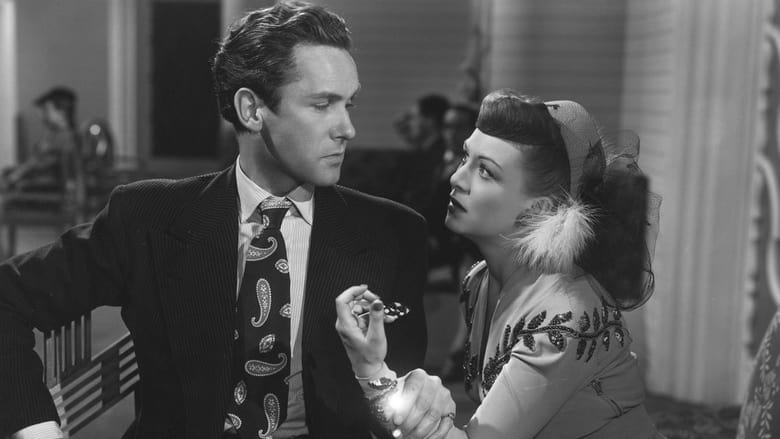
Good-Time Girl (1948)
Good Time Girl stars Jean Kent as incipient juvenile delinquent Gwen Rawlings. Sent to a home for "problem" girls, Gwen receives a crash course in petty crime. Back on the outside, she falls in with the usual bad crowd, and suffers spectacularly as a result.
Watch Trailer
Cast


Similar titles
Reviews
In one of her earliest roles young teen Diana Dors is being given a lecture by social worker Flora Robson on the evils of wilful disobedience to her parents. Flora decides to best make her point by example and she chooses to tell Diana the story of Jean Kent and her downward spiral from when she started out as a teen delinquent just like Dors.It begins innocently enough, Kent has a job in a pawnshop and she borrows some of the jewelry to wear on a date. The owner catches her and threatens to report her to the police. But he'll forget it with a quick roll in the hay. She goes home and dad whales the tar out of her. After that it's a lot of poor choices combined with being in the wrong place at the wrong time with the wrong people.Kent does a fine job even though she's 27 years old as the troubled young post war British girl. Along the way she meets up with playboy Dennis Price, club owner Herbert Lom, hood Peter Glenville, and finally deserter American soldier Bonar Colleano who puts the final touch to a short but violent criminal career.A good ensemble cast backs Kent. But the story is about her and she's memorable in her part.
What is film noir? The genre has been described by a number of eminent critics as a movie, predominantly photographed in low-key lighting, and set in the "unstable universe" of the crime underworld in which "frightened, fugitive characters struggle to survive." Film noir has a cohesive visual style. Dark, brooding images reinforce the noir movie's overall downbeat mood. The other consistent aspect of the genre can be found in its protagonists. They are usually ordinary people—good people at heart. Often alienated from society, they yet find themselves hopelessly entrapped (either through no fault of their own at all or a very minor failing) in the very milieu from which they are desperately trying to escape. The more they struggle against their fate, the deeper they sink into the swamp.A masterpiece of the genre, Good-Time Girl is one hundred per cent film noir. The movie outraged censors in its day and it still packs a tremendous wallop. A scathing indictment of the British justice system, the movie presents us with an ill-fated heroine (most expressively acted by Jean Kent).The nightmarish film noir quality of the story is abetted by the unique device of having it narrated in a perfectly straight fashion by the very same hideous person who sent our innocent heroine to the Dickensian reformatory. What is even more horrifying is that the brutal, brainless, totally insensitive and remarkably evil Flora Robson character uses the harrowing story neither to accuse herself nor to deny her own prime involvement in this shattering and totally inexcusable miscarriage of justice. Instead, she regards it as her "duty" to use it to point an unacceptable moral to all young girls to stay at home – even though they may be independent and earning a good wage – and put up with all the filth and squalor and brutality of the slums. It's impossible to reconcile Robson's "moral" with good sense, let alone justice and equity. No wonder the Australian censor banned the film!The filmmakers themselves admitted in a synopsis provided to the Library of Congress that their movie was an exposé of British "justice" in which the innocent victim is brutalized at every turn until finally she is put away for a fifteen-year stretch for a crime in which she was a most unwilling accomplice.These disturbing elements are driven home by a series of brilliant performances: Jean Kent as the beleaguered heroine; Peter Glenville as her spivvy accuser; Jill Balcon as "king" of the reform school; Flora Robson as the vicious magistrate; Beatrice Varley as the heroine's mother; Elwyn Brook-Jones as her lecherous employer; Griffith Jones as the vengeful Danny; and Danny Green (we see only his back, but what an expressive back it is)!David MacDonald is not normally a director that I would go out of my way to salute, but in this case he has directed with force, pace and imaginative flair, aided by superbly noirish black and white camera-work and some marvelously atmospheric sets.
The 27-year-old Jean Kent plays 16-year-old Gwen in this excellent and harrowing British film that looks at the downfall of a good-time girl.Told as a cautionary tell by Flora Robson (a court officer) to Diana Dors (a possible delinquent), the story of Gwen combines parts of all those Hollywood movies starring Lana Turner or Susan Hayward in which the good girl goes bad---and PAYS for it.Gwen is a well-meaning girl who comes from a violent home and likes nice things. After a final beating from her father on being fired from a job in a pawn shop, she runs away and gets an apartment in London. There she meets a man who gets her a job in a nightclub. From then on she's on a descent into a world of booze and sleazy men. She never really does anything wrong but she crosses the wrong guy and he gets even by framing her in a jewel heist. She's sent to a reform school, learns to be really tough, and escapes to live an even wilder life of men and booze. The final sequence of events is mesmerizingly horrible as Gwen gets framed one last time.Jean Kent is terrific and totally believable as the willful teenager and party girl. She's as good as any tough girl in any Hollywood film. Supporting cast offers a few great roles here: Griffith Jones, usually a nice guy, plays a sadistic thug; Jill Balcon (mother of Daniel Day-Lewis) is great as the vicious Roberta; Herbert Lom is subdued as Maxie the nightclub owner; Beatrice Varley is good as the hapless mother; Dennis Price is memorable as Red; and Flora Robson scores again as the court official.Just a terrific little film.....
Warning: spoilers. Gwen, a teenage girl leaves a brutal home and falls into bad company. Sent to reform school she gets wised up quickly, and embarks on a criminal career.The British *do* do sordid nicely! From the heroine's slum home through to the gangland nightclubs she comes to inhabit I was given the clear impression that her world was nasty, corrupt and dangerous. Jean Kent, the actress who played Gwen, brought the part off well too. She was convincingly innocent and rebellious in the beginning; convincingly hard and amoral at the end.The plot was fast paced and the script tight. The movie never bogged down at any point, possibly because it was tightly focused on the main character. The peripheral characters were neatly sketched in. Some verged on the edge of cliche, but since they were only there to move Gwen's story along, they never quite tipped over the edge.That being said, there are parts of the movie which are hokey. The first instance which struck me was the scene where Gwen's father thrashes her with his belt - it was quite plain to me that the actor was doing his best to miss Jean Kent. The framing story which surrounds the main plot seemed unnecessary and begged the question how the narrator of Gwen's story knew all the details of her career. I suspect it was put there to point out the moral to "Good Time Girl"'s original audience. I also suspect that the movie was originally promoted with slogans such as "From Today's Headlines!"


